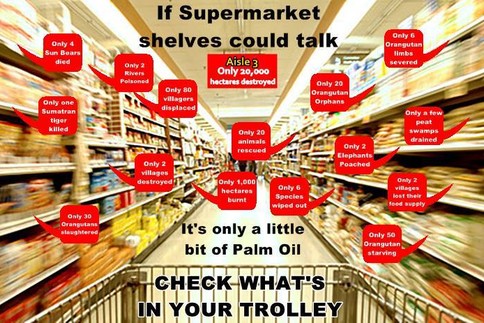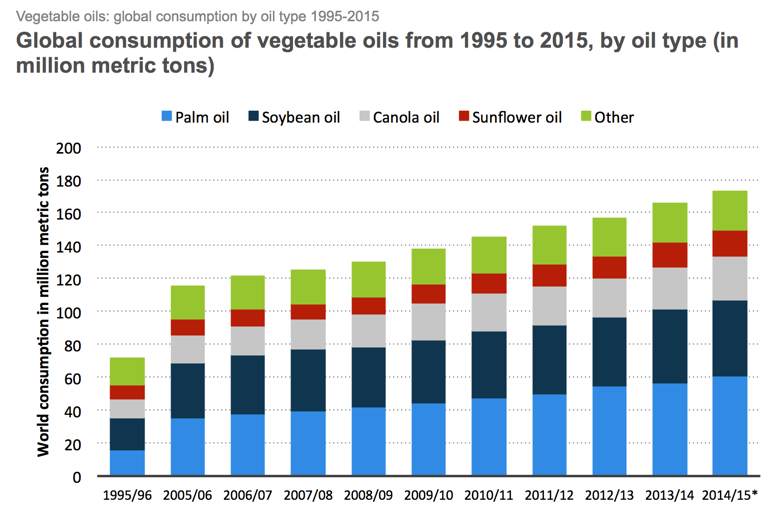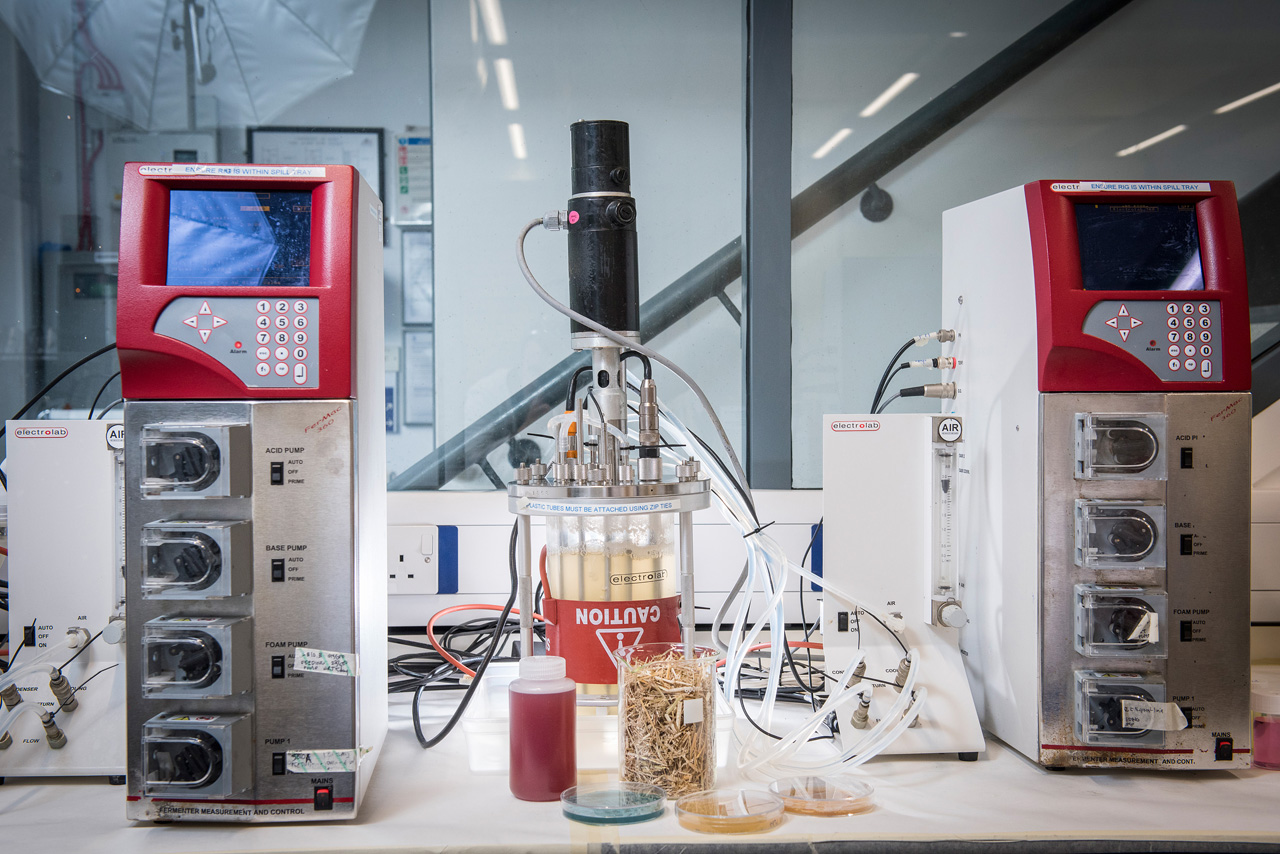
Palm oil is the most widely consumed vegetable oil in the world. It is found in a wide variety of products ranging from vitamins to chocolate, bread, laundry detergent and even biofuel. The oil is popular because it has an exceptionally high melting point and contains primarily saturated fats. The former allows the oil to maintain a semi-solid consistency at room temperature making it easy to spread, while the latter makes it the perfect substitute for trans fats which are generally deemed unhealthy. It also has the highest yield of any oil crop and is cheap to produce and refine.
But the oil's popularity comes at a steep price. Palm trees need a rainforest climate — consistently high humidity and temperatures, and large amounts of land to grow. As a result, thousands of acres of rainforests in Indonesia and Malaysia, the world's biggest palm oil producers are being razed down to make room for plantations.

With half of the 60 million metric tons of palm oil coming from Indonesia, one of the greatest casualties of this phenomenon has been the orangutans. In the last 20 years, over 80% of the mammal's habitat has been destroyed. To make matters worse, in 2015, illegal destruction of some rainforests resulted in wildfires that endangered one-third of the remaining orangutans. Palm oil plantations have also threatened tigers, elephants, and rhinos and been associated with the previously pristine region's increasing water and air pollution.
Though the easiest solution is to stop using palm oil so ubiquitously, that is not going to happen unless manufacturers can find an alternative. This is not easy given that no other naturally occurring vegetable oil has both the qualities of palm oil.
Now thanks to a team of researchers from England's University of Bath and University of York there is some hope. The scientists have been able to create an artificial alternative using food waste or feedstock and M. pulcherrima, a yeast that grows on leaves, fruits, and flowers. The yeast eats the sugars from the biomass and turns it into a thick oil that has almost identical qualities to palm oil. The best part is that the yeast can be commercially produced in virtually any kind of weather and requires substantially less land than palm trees.
The scientists who have been working on the project for three years say their biggest challenge was to find an economical way to convert the sugars in the food waste to a form the yeast can consume easily. The conventional method, called “steam explosion,” where water is violently boiled or flashed into steam, requires a lot of energy and is therefore not practical for widespread use. After some experimentation, they were able to replicate the process using a microwave!

The team led by University of Bath lecturer, Dr. Chris Chuck, is now trying to test if they can manufacture the oil in larger quantities and more economically. That's because to replace palm oil they will have to reduce the cost of producing the fake oil from the current $1,200 USD a ton to between $800 - $900 USD a ton.
Though optimistic, experts are not holding their breath. After all, this is not the first time an alternative to palm oil has been touted. Past efforts include artificial substitutes made using algae and the jatropha tree. However, neither was commercially viable.

Meanwhile, things are not looking promising for orangutans. Animal conservationists predict that if the rainforest destruction is not stopped soon, wild orangutans may become extinct by 2023.
Resources: Independent.co.uk,worldwildlife.com,guardian.com,wikipedia.org